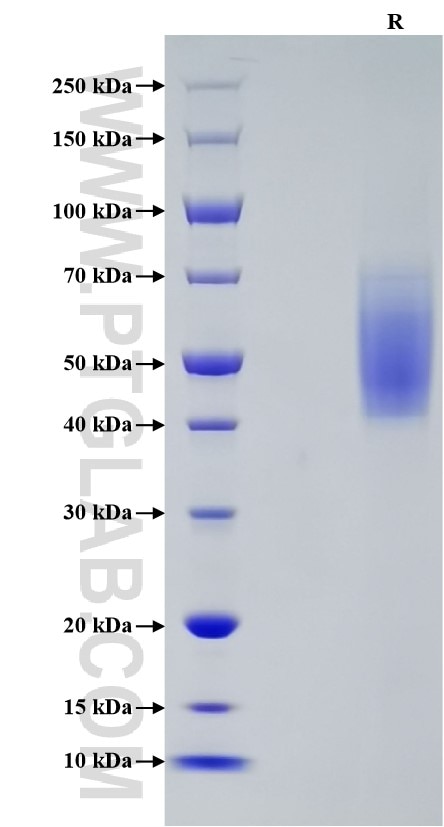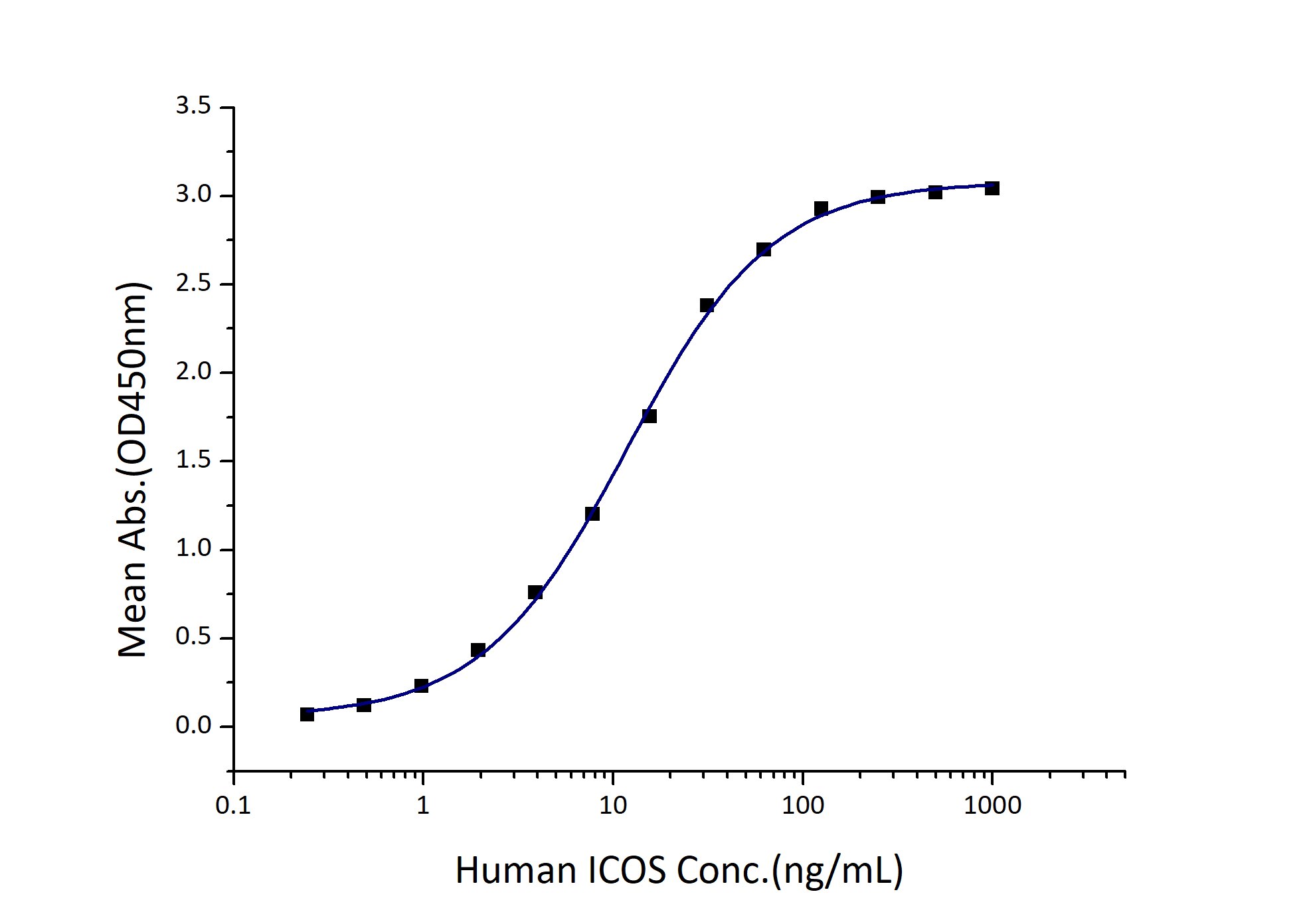Recombinant Human ICOSLG/B7-H2/CD275 protein (Myc Tag, His Tag)
Species
Human
Purity
>95 %, SDS-PAGE
Tag
Myc Tag, His Tag
Activity
EC50: 6-24 ng/mL
Cat no : Eg0008
Validation Data Gallery
Product Information
| Purity | >95 %, SDS-PAGE |
| Endotoxin | <0.1 EU/μg protein, LAL method |
| Activity |
Immobilized Human ICOSLG (Myc tag, His tag) at 0.5 μg/mL (100 μL/well) can bind Human ICOS (hFc tag, Myc tag, His tag) with a linear range of 6-24 ng/mL. |
| Expression | HEK293-derived Human ICOSLG protein Asp19-Thr256 (Accession# O75144) with a Myc tag and a His tag at the C-terminus. |
| GeneID | 23308 |
| Accession | O75144 |
| PredictedSize | 28.9 kDa |
| SDS-PAGE | 42-70 kDa, reducing (R) conditions |
| Formulation | Lyophilized from 0.22 μm filtered solution in PBS, pH 7.4. Normally 5% trehalose and 5% mannitol are added as protectants before lyophilization. |
| Reconstitution | Briefly centrifuge the tube before opening. Reconstitute at 0.1-0.5 mg/mL in sterile water. |
| Storage Conditions |
It is recommended that the protein be aliquoted for optimal storage. Avoid repeated freeze-thaw cycles.
|
| Shipping | The product is shipped at ambient temperature. Upon receipt, store it immediately at the recommended temperature. |
Background
ICOS ligand (ICOSLG, ICOSL or GL50) is a protein that in humans is encoded by the ICOSLG gene located at chromosome 21. ICOSLG has also been designated as CD275 (cluster of differentiation 275). ICOSLG is glycosylated transmembrane structure, which is classified as a member of the B7 family due to the significant homology with B7 family members. The B7/CD28 superfamily provides both positive and negative co-signals to immunocytes in immune responses. ICOSLG, which is extensively expressed in both non-lymphatic and lymphatic tissues, is an important molecule in upregulating and promoting T cell immune responses. Expression of ICOSLG in naive B cells and monocytes in PBMCs is at a low level. After stimulation by IFN-γ, TNF-α, or LPS, it can be quickly up-regulated. The induced expression of ICOS on activated T cells mainly regulates the secretion of Th2 cytokines and thus shifts the immune response to the Th2 type. It has been reported that the ICOS/ICOSLG pathway is involved in immunopathogenesis such as infection, hypersensitivity, autoimmune diseases, transplantation immunity and tumor immunity.
References:
1. Ishikawa K. et al. (1998) DNA Res. 5(3):169-76. 2. Yoshinaga SK. et al. (2000) Int Immunol. 12(10):1439-47. 3. Shen S. et al. (2011) Hybridoma. 30(4):361-8. 4. Zhang G. et al. (2020) Biomed Res Int. 2020:9756732.


